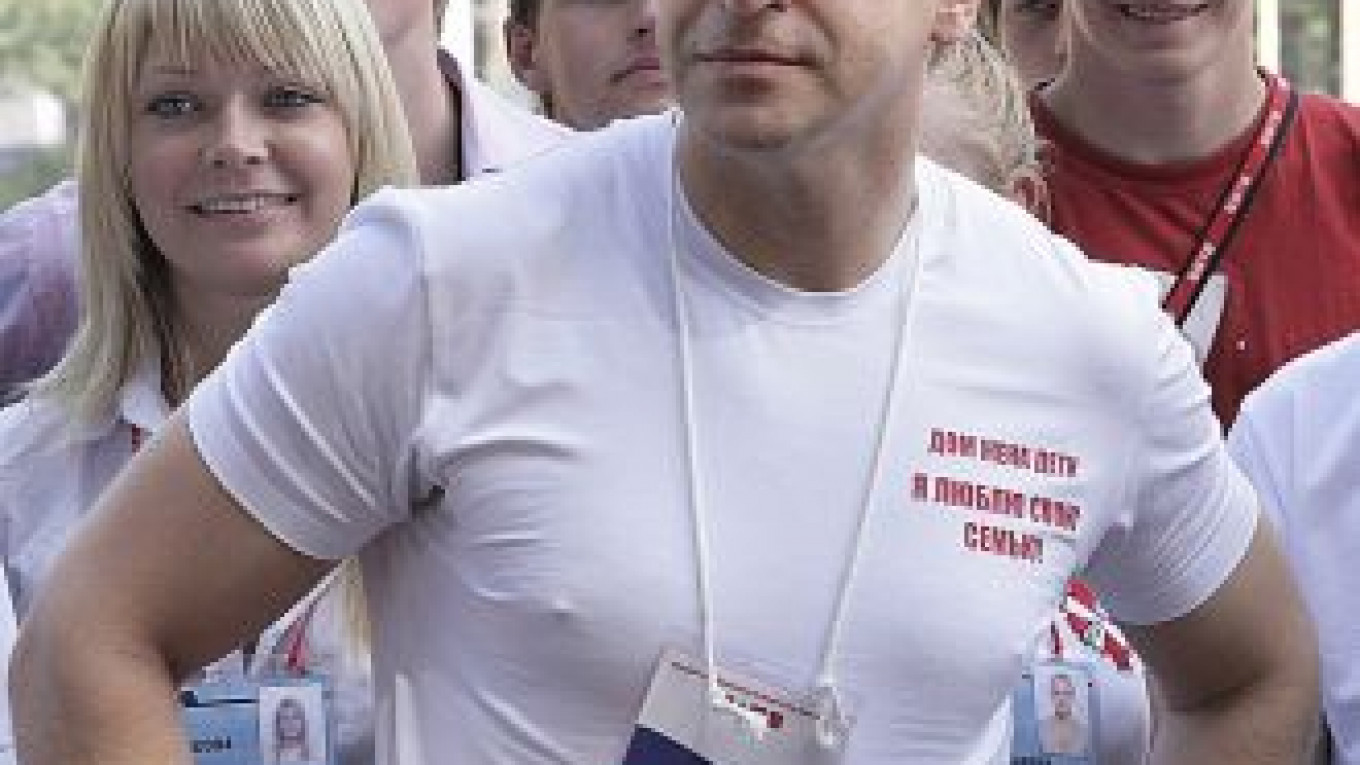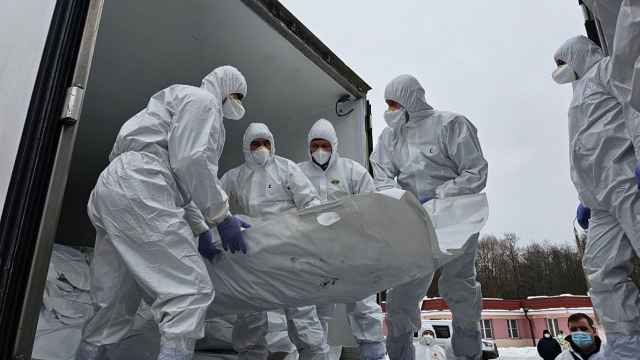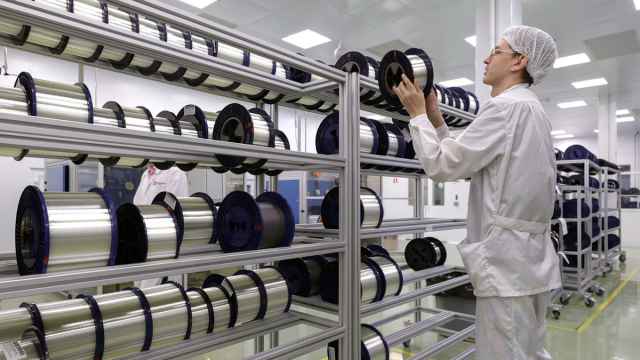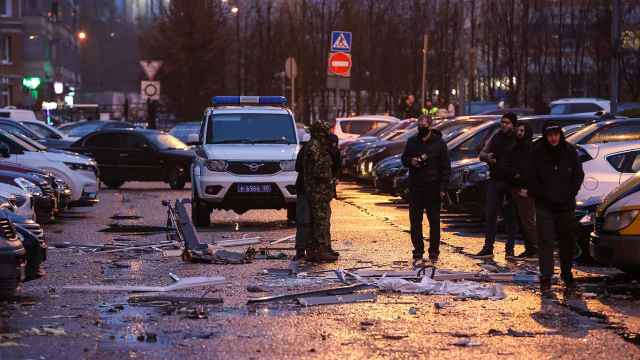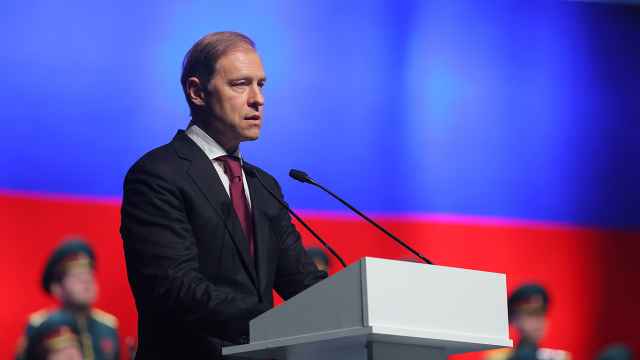A U.S.-based Russian lawyer suspected of spilling the beans about First Deputy Prime Minister Igor Shuvalov’s links to business stopped short of taking credit Thursday, but said the revelations could help fight corruption in the country.
Shuvalov has denied any wrongdoing, but the spotlight on the personal wealth of President-elect Vladimir Putin’s close lieutenant is threatening to leave another scratch on Putin’s Teflon coating.
Pavel Ivlev, the lawyer who helped Shuvalov’s family make lucrative investments at home and abroad in the early 2000s, is vehemently anti-Putin and has ties with the Russian political opposition. He said in a statement that “even if the assumption … that I provided the information” is true, he did not violate the attorney-client privilege.
Late Wednesday, Ivlev’s colleague at the time, Artyom Dymskoi, accused him of divulging details about the deals and said he would seek his expulsion from the Russian bar.
The story that Shuvalov’s family made money in cahoots with the country’s big-time businessmen first broke in December, days before the State Duma elections. It came to light again, in an expanded form, in a country rattled by large election-related street protests and discontent with Putin.
Specifics about the transactions that made the Shuvalovs rich — published simultaneously by The Wall Street Journal and The Financial Times on Wednesday — suggested that the official could have had a serious conflict of interest while serving the public.
“I think nobody, including Igor Shuvalov, will argue about the considerable hurdles for executing justice in today’s Russia, especially in cases of corruption in the higher echelons of power,” Ivlev said in a statement Thursday. “I hope that a public discussion by the news media of the income sources of a high-placed state official — a first deputy prime minister of the country, will facilitate stronger rule of law in Russia.”
Ivlev, who lives in Sparta, New Jersey, joined the Institute of Modern Russia that was established in that city in February 2010 to “support democratic values and institutions” in Russia. The institute’s founder is the former Yukos chief Mikhail Khodorkovsky’s son, Pavel, who urged Russians in a recent U.S. television show to vote for any of Putin’s opponents in the March 4 presidential election.
Prosecutors incriminated Ivlev, a longtime legal counsel of Yukos, in the tax-arrears case against the oil company and he fled Russia for New York in 2004 in what he described as “fear of unjust prosecution.” Whistle-blower and opposition activist Alexei Navalny has agreed to help defend Ivlev in the case.
The media exposé of Shuvalov’s finances could hurt Putin, said Christopher Granville, managing director at Trusted Sources, a London-based research company that focuses on Russia and other emerging markets.
“The goal of these revelations might be to intensify the shadow of corruption around Putin himself by suggesting that one of the senior officials who is closely associated with him acted improperly,” he said by telephone.
Speculation about Shuvalov’s suspicious conduct could damage his chances of making it into the next Cabinet. Shuvalov is a liberal in charge of helping foreign investors and pushing for large privatizations. His weakening as a result of the news reports could reinforce the chances of the other liberal contenders for his post, said Lilit Gevorgyan, a Russia analyst at IHS Global Insight in London.
The Cabinet is to resign May 7 in honor of Putin’s inauguration as president. Putin said he would back incumbent President Dmitry Medvedev as the next prime minister. Kremlin economic aide Arkady Dvorkovich could be interested in replacing Shuvalov in the new Cabinet, said Alexei Mukhin, a political analyst in Moscow.
Gevorgyan said, “In the light of discontent on Russian streets, the composition of this new Cabinet will be under particular scrutiny.”
Political analyst Iosif Diskin said the suspicions circulated in the media would hardly lead to Shuvalov’s removal from Putin’s inner circle.
Shuvalov, Ivlev and Dymskoi once worked in the same law firm that now has the name of ALM Feldmans. Ivlev said he didn’t break attorney-client privilege because the Shuvalovs didn’t sign a formal contract with the law firm where he worked.
Wednesday’s publications focused on a deal by Sevenkey — an offshore company reportedly owned by Shuvalov’s wife Olga. The company invested about $18 million in Gazprom shares through billionaire Suleiman Kerimov’s investment vehicle Nafta Moskva in 2004, a year before the government lifted restrictions on foreign ownership of the stock, the reports said. The change sent the share price through the roof, or up 700 percent by 2007.
The earlier publication, by U.S. weekly Barron’s, shed light on a joint investment with billionaire Alisher Usmanov, named earlier this month as Russia’s richest person.
Shuvalov has said the deals were in line with the law and that the wealth brought him independence in making a statesman’s decisions. The Prosecutor General’s Office said Wednesday that its investigation showed that Shuvalov was clean.
Opposition activist Natalya Pelevine, who helped the news outlets investigate the deals, said Wednesday that she would appeal the prosecutors’ decision in court.
Sergei Aleksashenko, a former finance minister, said it was “hard to believe” that Shuvalov never lobbied in favor of Usmanov and Kerimov in return. Usmanov’s Metalloinvest company received a sizable federal bailout during the crisis as part of an effort that Shuvalov spearheaded, he said in a post in his LiveJournal blog. Developer PIK received federal support after it gave away a quarter of the company to Kerimov, Aleksashenko said.
Shuvalov’s career as a government official started in 1997, when he was appointed a department head at the State Property Committee.
He was subsequently promoted to the government’s chief of staff and served as an economic aide to Putin, who first took office as president in 2000.
Putin appointed him first deputy prime minister after taking over as Cabinet head in 2008.
Staff writer Alexander Bratersky contributed to this report.
A Message from The Moscow Times:
Dear readers,
We are facing unprecedented challenges. Russia's Prosecutor General's Office has designated The Moscow Times as an "undesirable" organization, criminalizing our work and putting our staff at risk of prosecution. This follows our earlier unjust labeling as a "foreign agent."
These actions are direct attempts to silence independent journalism in Russia. The authorities claim our work "discredits the decisions of the Russian leadership." We see things differently: we strive to provide accurate, unbiased reporting on Russia.
We, the journalists of The Moscow Times, refuse to be silenced. But to continue our work, we need your help.
Your support, no matter how small, makes a world of difference. If you can, please support us monthly starting from just $2. It's quick to set up, and every contribution makes a significant impact.
By supporting The Moscow Times, you're defending open, independent journalism in the face of repression. Thank you for standing with us.
Remind me later.


